Team manager : Frédéric AUBRIET
Topic 1 : Catalysis and adsorption
The group ”Catalysis and Adsorption”, mainly located on Saint-Avold site, develops their research on the design and characterization of the active sites, and studies performances of adsorbents and catalysts (zeolites, nanostructured and functionalized carbons and oxides, oxide-supported metals…) for:
– nuclear safety (trapping of volatile iodized compounds, RuO4…)
– removal of aqueous pollutants by advanced oxidation process (Fenton, photocatalysis…)
– trapping and transformation by catalysis of gaseous pollutants (NOx, COV, CO2…)
A transverse activity consists in detecting, by in situ spectroscopy (IR/DRIFTS, UV-Vis…), catalysis intermediates and in elaborating reaction mechanisms.
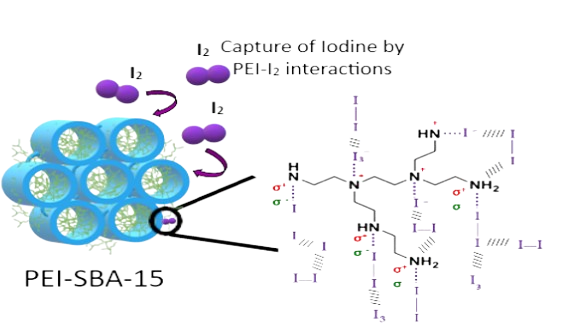
Charge transfer complexes between iodine
and functionnalized mesoporous silica
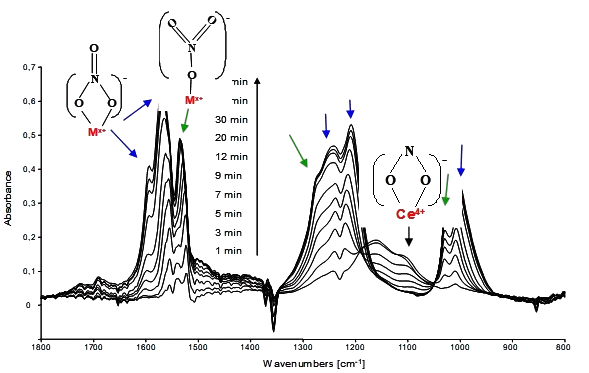
Identification of NOx species
adsorbed on CeO2 at 350°C
Topic 2 : Complex organic matrix analysis for energy and environment
The mass spectrometry group develops targeted and non-targeted approaches for :
– The analysis of atmospheric particle contaminants et organic compounds persistent in soils and waters,
– The study and the valorization of the lignocellulosic biomass and plastics for the development of sustainable alternatives to fossil resources (biofuels, value-added chemicals…)
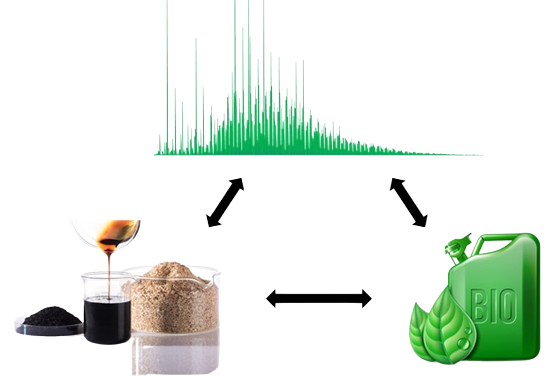
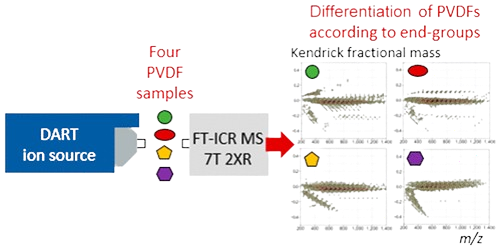
Topic 3 : Active molecules
In a first line of research, the mass spectrometry group uses and develops metabolomic approaches for the screening of active molecules in biological systems, such as plants and vegetal extracts.
In a second research axis, the organic synthesis group performs multi-step synthesis of heterocycles with potential biological applications. To this end, the team promotes the use of bio-sourced or deep-eutectic solvents and alternative activation methods (microwave, ultrasound) for more eco-responsible practices.

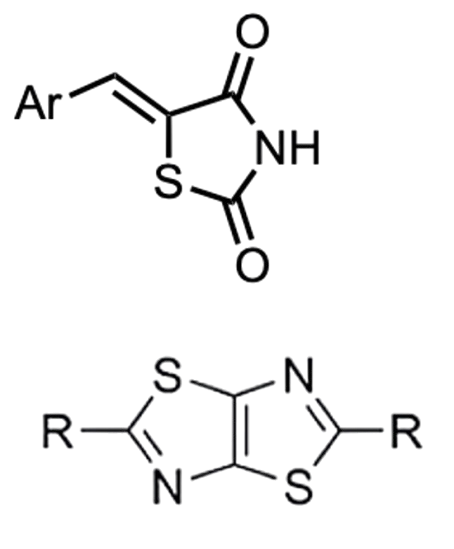
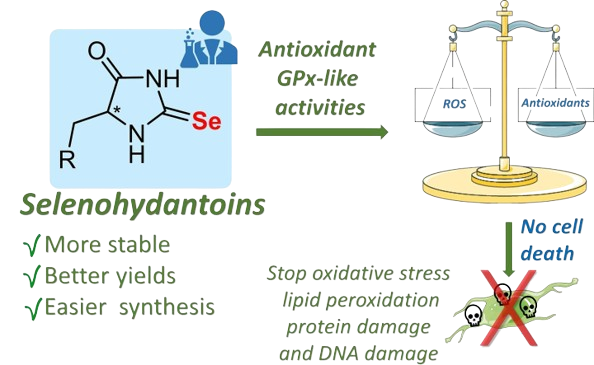
Regular members
- Frédéric AUBRIET (Professor)
- Bruno AZAMBRE (Professor)
- Philippe BURG (Professor)
- Vincent CARRÉ (Professor)
- Patrick CHAIMBAULT (Professor)
- Alain COMEL (Assistant professor HDR)
- Amadou DICKO (Professor emeritus)
- Gisèle FINQUENEISEL (Professor)
- Nawres GHARRED (Graduate assistant)
- Christel GILQUIN (Technical assistant)
- Marisa GOMES-MAIA (Associate researcher)
- Jasmine HERTZOG (Research engineer)
- Stéphanie HESSE (Professor)
- Jean-François LONGEVIAL (Assistant professor)
- Pierre MAGRI (Research engineer)
- Muriel MATT (Assistant professor)
- Ali MODARRESSI (Assistant professor emeritus)
- Nicolas OGET (Professor)
- Sandrine RUP-JACQUES (Engineer)
- Mohammad SAMADI (Professor)
- Sébastien SCHRAMM (Assistant professor)
- Michèle SINDT (Assistant professor HDR)
- Lionel VERNEX-LOSET (Research engineer)
- Thierry ZIMNY (Professor)
PhD students and Postdocs
- Louise CADONA (PhD Student)
- Felipe MARTINS (PhD Student)
- Thien Thuy Trang NGUYEN (PhD Student)
- Pierre SCHNEIDER (PhD Student)
- Nathan TRAULLÉ (PhD Student)
